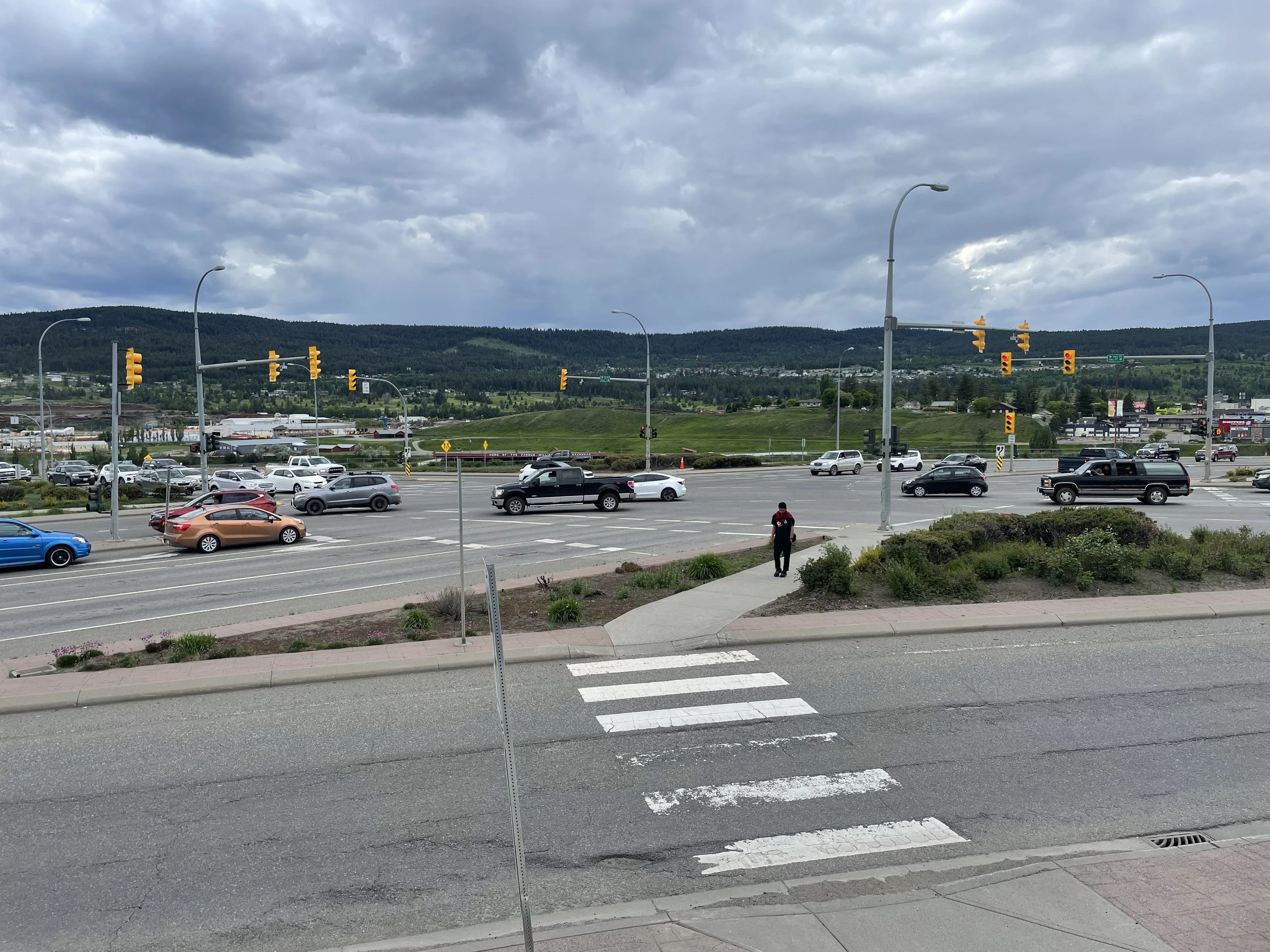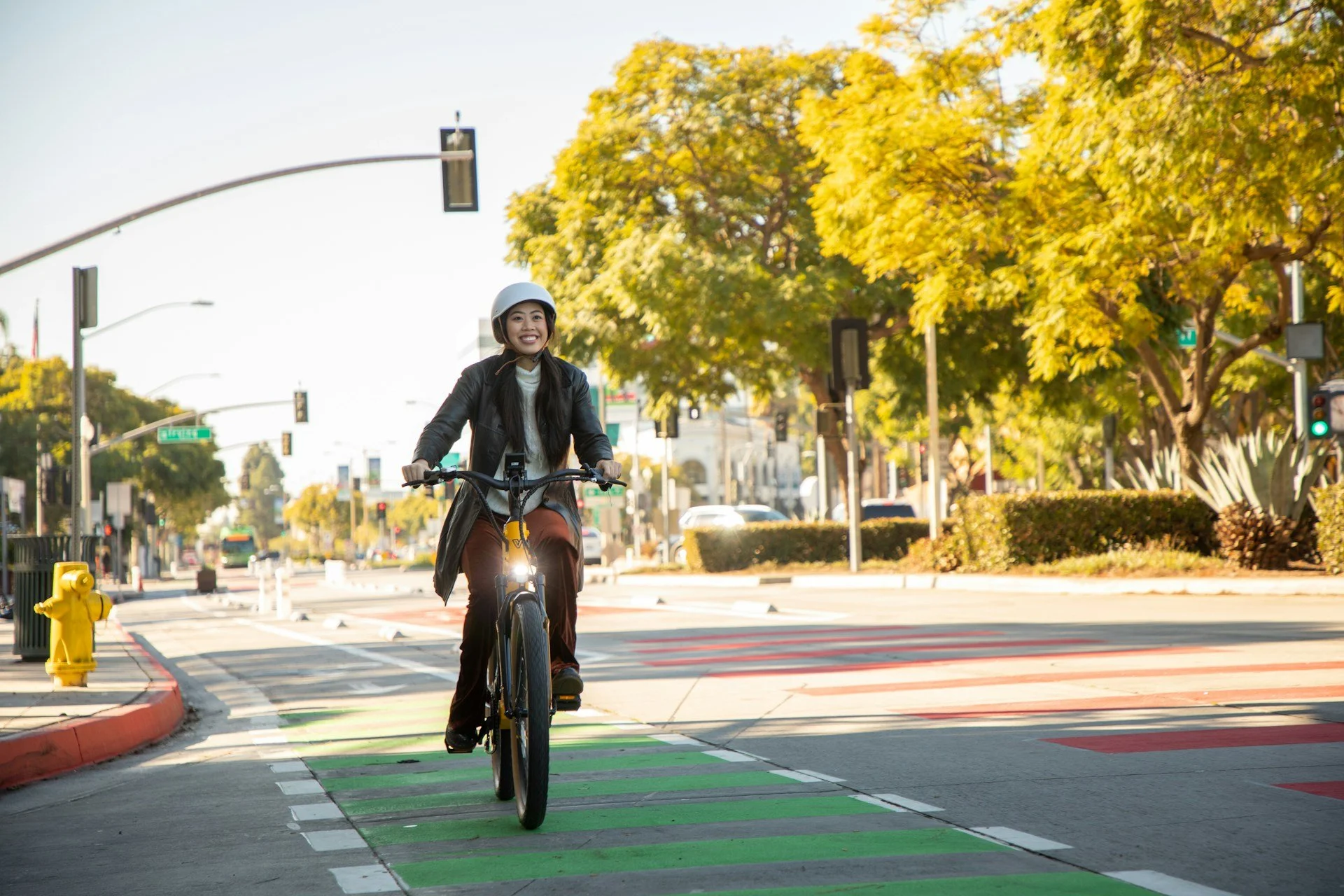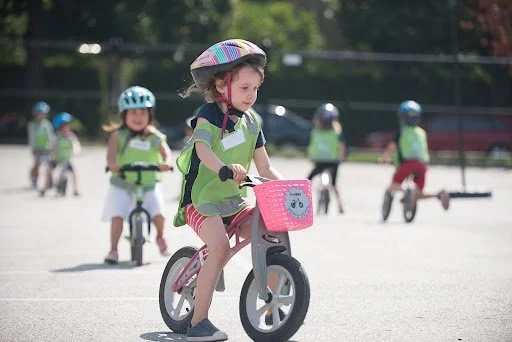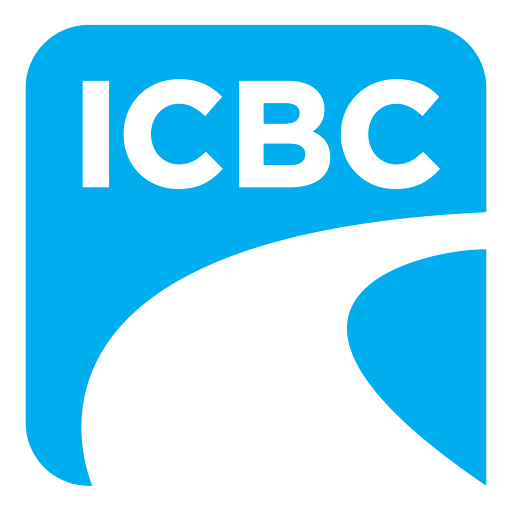Vol. 26 Issue 4
Government & Policy
BCCC calls on BC government to turn road safety violations into revenue source, increased investment in AT and more …
On June 20, BCCC submitted a version of these recommendations to the Select Standing Committee on Finance and Government Services, as part of BC’s annual Budget Consultation process.
-
Proposals:
Reinstate automated traffic enforcement to penalize unsafe driving and fund road safety improvements.
Redirect ICBC’s annual profits into safety-focused infrastructure and education.
Why This Matters:
BC needs revenue sources that improve both public safety and public health, not just extract value from natural resources. Targeting dangerous driving not only raises funds but encourages safer behavior. Using ICBC profits for safety initiatives would:
Modernize driver education for today’s multi-modal roads.
Fund public awareness campaigns to promote safe driving.
Support training and enforcement of new traffic laws, such as BC’s 1.5m safe passing law.
These changes align with BC’s goals to improve affordability, sustainability, and quality of life for residents.
-
Why This Matters:
Current funding for walking and cycling infrastructure is less than 1% of BC’s transportation budget—just $3 per person annually, compared to over $1,000 per person spent on highways.
To meet BC’s CleanBC goal of 30% of trips by active transportation, this imbalance must be corrected. Investing more in active transportation:
Encourages healthier, low-carbon travel.
Reduces long-term health and infrastructure costs.
Responds to growing demand—evidenced by an oversubscribed grant program in 2024, where only 63 of 84 municipal projects received funding.
A 5% allocation would reflect a more equitable and strategic investment in the province’s long-term transportation and climate goals.
-
Proposal:
BC ministries should use the Canadian Sustainability Disclosure Standards (CSDS) to guide budget decisions and track outcomes.
Why This Matters:
Current service plans lack transparency around why certain projects are funded or how they support long-term goals like sustainability and public health. For example:
The $2.3 billion Highway 1 expansion does not factor in related increases in traffic, chronic illness, pollution, or loss of natural habitat.
Key costs (like increased collisions) and revenues (like revenue from car sales tax) are often unaccounted for.
Using CSDS would:
Provide a full picture of social, environmental, and health impacts.
Help ministries explore alternative solutions beyond traditional highway expansion.
Better align investments with public values and BC’s strategic goals.
Enable more informed and productive public and political dialogue.
Williams Lake calls on BC government to take the lead on providing AT infrastructure on provincial highways that run through municipalities and communities
-
When it comes to making local streets safer for walking and cycling, communities like Burns Lake, Chetwynd, Houston, Williams Lake and so many others in the Interior are very limited in what they can accomplish, simply because provincial highways and their infrastructure represent massive barriers to safe circulation. In these and many other Interior and Northern BC communities, you can’t pedal or walk very far without coming up against very unsafe situations on highways - which limits the safe active travel options of most people in these communities. The obstacle of provincial highways in these towns not only limit healthy lifestyle choices, but economic, educational, and recreational opportunities as well.
Williams Lake city council put forward a resolution for adoption by the North Central Local Government Association (NCLGA). We’re sharing it here because we hope you’ll consider asking your own local government representatives to support this resolution at the Union of BC Municipalities’ annual meeting of local elected officials from across the province.
1. Active Transportation Infrastructure on Rural Highways
NCLG/UBCM Resolution:
WHEREAS the lack of MoTT active transportation infrastructure on rural highways adversely affects provincially declared climate initiatives, and encouragement of active transportation commitment in smaller municipalities;
AND WHEREAS these highways are located in the central key parts of rural communities, often as main streets and are in dire need of safe affordable transportation options which can also facilitate local governments to tie their own active transportation plans into, so to improve community health, economic opportunities and social interactions;
THEREFORE BE IT RESOLVED that NCLGA and UBCM lobby the BC Government to expand budgetary funding so they can be proactive in the development and installation of active transportation options on all existing MOTT infrastructure within rural municipal boundaries.
Supporting Memo:
There has been positive commitment by the provincial government to support communities in becoming more proactive on climate initiatives. Previous statements and declarations done within the ‘StrongerBC for everyone, Investing in a bright future for rural communities’, showcased the intent of the provincial government. Support has come through the provision of funding to some communities as active transportation grants, but there is an oversight on what true commitment should actually be from the Province.
There are multiple smaller municipalities with substantially burdened budgets and limited staff, that have highway corridors that run through the middle of their jurisdictions. Highways generally challenge communities with high speeds, large industrial traffic and significant safety concerns. These travel arteries are ultimately the responsibility of the provincial government to maintain and develop to current standards and expectations. If the provincial government took the lead and proactive establishment of active transportation additions to these highways, it would support communities in multiple ways. Firstly, the most important point of safety, thereafter, actively making progress on CleanBC goals, promoting sustainable modes of travel, increasing transportation affordability, along with improving health both physical and mental of the community members. It will encourage individuals to get out and do active transportation, and thereafter encourage the municipality to create more joining infrastructure! Community members will use these routes regardless of existing active transportation plans, because these arteries are generally the shortest and most direct for commuting.
If the BC Government took the lead, it would encourage local jurisdictions to be just as proactive in establishing these objectives for the common good of all. This is a provincial responsibility that is being unfortunately passed down to the municipalities to try and fix. If the BC Government truly wants municipalities to be proactive, then please show us how it is done.
The saying “Don’t just talk the talk, but actually walk the walk!”, could not be any more relevant!
Ask your local government reps to support this resolution at UBCM
PIBC recognizes the work of Allan Kindrat from WSP and the Regional District of Bulkley-Nechako.
This award also recognizes a major breakthrough for the B.C. Ministry of Transportation and Transit, who took ownership of the project and contributed significant funding to this active transportation project, a first for B.C. and probably in Canada.
Allan Cormier of Cycle 16 was the guest at our first Bike Sense podcast, and Allan Kindrat will be featured on an upcoming podcast explaining how this project came to fruition.
"Too Close for Comfort": A Closer Look at Safe Passing Laws and What’s Next for BC
Ontario, like B.C., is struggling with enforcement of its Safe Passing Distance legislation. The BCCC would love to muster the resources to mount a comparable campaign to the one below.
In the meantime, we have some ideas about engaging the RCMP and changing highway signs to educate drivers about the need to stay at least 1m from vulnerable road users, or 1.5m (the width of a queen-sized mattress!) where the speed limit is over 50 km/hr. Stay tuned!
Here's what Ontario has just done:
Too Close for Comfort
Ontario's Share the Road Cycling Coalition launched an important cycling and road safety education campaign during Canada Road Safety Week in May 2025.
The “Too Close For Comfort” education campaign and PSA is supported by Share the Road, the Ontario Provincial Police, CAA South Central Ontario, the Les Domestiques Cycling Club and the award-winning advertising agency theturnlab. Click here to read the press release.
Announcements
Next Provincial Advocacy Roundtable is set for Thursday, July 24th, 12-1pm Register Here to receive a calendar invitation.
Have a topic you wish to discuss? Suggest it here!
Final agenda will be circulated by Monday, July 21st
Program Updates
Early Bird Registration Now Open for the 2025 BC Active Transportation Summit
We’re thrilled to announce that early bird tickets are now on sale for the 2025 BC Active Transportation Summit, happening September 10–12 in Kimberley, BC.
Hosted by the BC Cycling Coalition in partnership with movmi and the Planning Institute of BC (PIBC), the summit will bring together planners, policymakers, advocates, and industry leaders from across the province to shape the future of walking, cycling, and micromobility in British Columbia.
This year’s theme, “Moving Further, Together,” will guide over 30 speakers and 23+ sessions on topics such as:
AT Future equals Healthy Future: Advancing community health across generations
Thriving Together: Building local economies through tourism and transformation
Small Communities, Big Change: Scaling AT innovations
Trails and Paths to Reconciliation: First Nations communities building bridges
Participants can expect panel discussions, interactive workshops, student poster sessions, and hands-on learning tours designed to spark ideas and inspire action. The full program will be released soon.
Early Bird Pricing:
General Admission: $250 (Regular $350)
Columbia Basin Trust Residents: $62.50 (Regular $87.50), thanks to the support of our Community Builder Sponsor, Columbia Basin Trust. See if you’re eligible.
Secure your spot today and be part of the conversation moving BC forward.
BC Bike Valet Map
Kids on Wheels summer camps open for registration
Help Your Little One Ride with Confidence!
Ready to get your child moving on two wheels? Kids on Wheels Balance Bike Camps are the perfect way for children aged 2 to 5 to learn to ride, build confidence, and have fun outdoors this summer!
Our camps blend play, learning, and cycling safety, whether it’s your toddler’s first time on a bike or your preschooler is ready to level up. With Parent Participation Camps and Preschool Camps to choose from, there’s something for every little rider.
Let’s spark a lifelong love for cycling in families across Vancouver!
Our Sponsors:

Catch the latest episode of BikeSense!
Alastair Craighead, Chair of Friends of Rails to Trails Vancouver Island, thinks so, and is one of many people working with regional districts, municipalities, businesses and land-owning First Nations to convert these derelict tracks into a world-class trail network.
Peter Ladner talks with him about the millions of dollars already invested in planning this cycle route, and what has to happen to complete it.
Check out Friends of Rails to Trails Vancouver Island HERE and be sure to watch their delightful video.
For another view on the corridor's future, see the Island Corridor Foundation.








